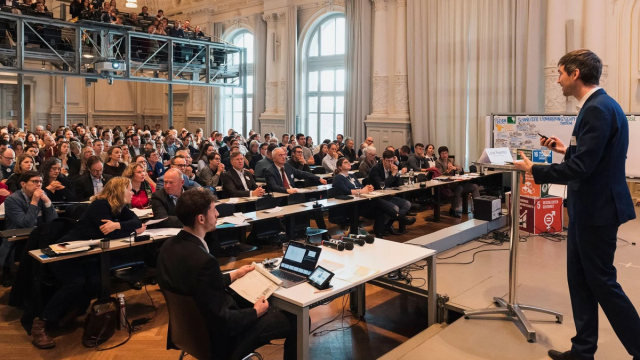Swiss Food System Summit Indicates Paradigm Shift
To unblock a highly polarized debate, a citizens assembly and a scientific expert panel independently developed policy recommendations to sustainably transform the Swiss food system. Their conclusions are strikingly similar: a set of concrete measures addressing all stakeholders along the food value chain are needed to achieve holistic sustainable development goals.
Food security is threatened. Wars, pandemics, climate change and the loss of biodiversity also threaten Switzerland's supply. As an internationally interconnected country, Switzerland depends on globally functioning ecosystems and stable supply chains, both for its security of supply and for its economy.
At the same time, the current food system is driving these crises. Food system surpasses planetary boundaries, is the cause of around 30% of greenhouse gas emissions in the world and is a determining factor in the loss of biodiversity. To ensure food security, it is therefore essential, from a scientific point of view, to orient the food system globally towards sustainable development throughout the value chain, and not only agriculture in the strict sense of the term. The 17 SDGs, which Switzerland has signed together with all other UN members as part of the 2030 Agenda, provide the framework for this.
In addition to the ecological aspects, it is also necessary to take into account economic and social aspects, such as the low incomes in agriculture and the food industry. The performance and needs of different actors along the food system value chain should be valued fairly and any costs should be distributed and compensated equitably.
Efforts towards a sustainable food system have been and are already being undertaken at different levels of the value chain.But what has been done so far is not enough and is happening too slowly. There is urgency, in particular because of the dangerous tipping points of ecosystems,which in turn accelerate climate change and the disappearance of species. Without rapid action, global food security, including in Switzerland, cannot be guaranteed in the long term and the Sustainable Development Goals will be far from being achieved.
Deliberations at the first Swiss Food System Summit organized by SDSN Switzerland on February 2nd in Bern indicate that the mood is changing. Almost 300 representatives of farmer, industry, environmental and consumer organizations met with scientists and policy makers to discuss the future of the Swiss food system. The conclusion of the summit: a win-win transformation of the food system that serves the environment, producers and the population equally is possible. For it to actually take place, concrete measures along the entire value chain are needed in a timely manner.
Experts and citizens agree on policy recommendations
In preparation for the summit, a scientific expert panel and a citizens' assembly independently developed comprehensive recommendations for shaping a sustainable food policy. The expert panel analyzed where the greatest need for action exists and how the levers must be applied to achieve societal goals. The recommendations of the citizens' assembly, on the other hand, show which measures can gain majority support among an informed population. Surprisingly, both processes came to similar conclusions. For example, both bodies recommend targeted support for the shift to sustainable production while providing incentives for sustainable consumption. By reducing excessive meat consumption, Switzerland's degree of self-sufficiency can even be increased. In view of the often low incomes in the agricultural and food sector, a change in the food system must also be designed to be socially just.
SDSN Switzerland is pleased to present the guide “Pathways to Switzerland’s Future of Food Future” by the scientific panel Future of Food Switzerland (in German and French). It was handed over to politicians and stakeholders at the summit together with the recommendations of the Citizens’ Assembly for Food Policy (German/French/Italian) and discussed with them. A summary of main levers and policies is also available in German and French.
About SDSN Switzerland
SDSN Switzerland is the Swiss Network of the SDSN working on localizing the 2030 Agenda and the Paris Climate Agreement. The network brings together more than 50 member institutions - universities, institutes, NGOs - and it builds partnerships with businesses.
